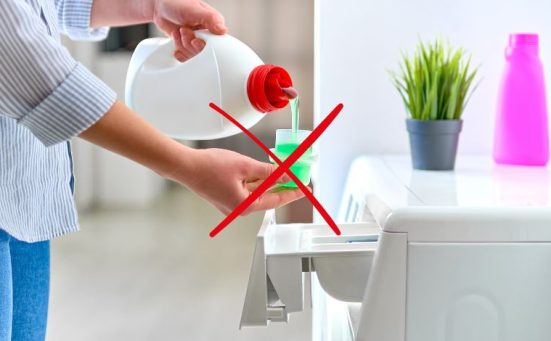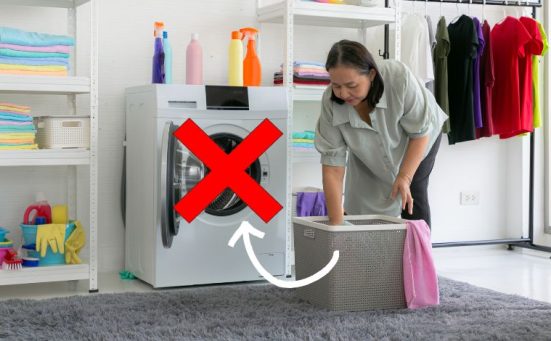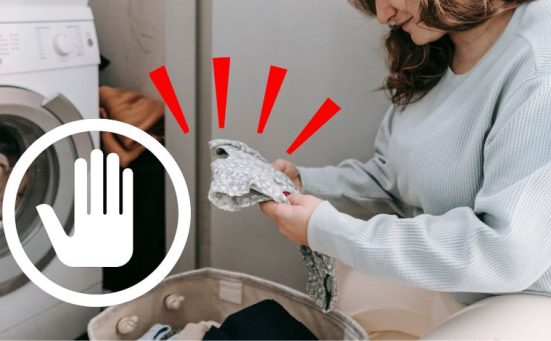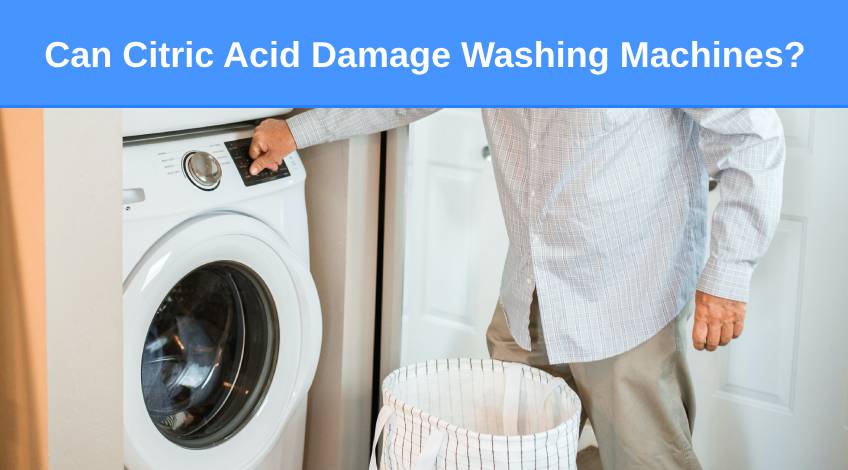
Can Citric Acid Damage Washing Machines?
You may have heard the debate that’s currently trending about using citric acid in washing machines as a cleaner. There are so many differing opinions which is why we’ve decided to write this article.
So, can citric acid damage your washing machine? The short answer is yes, but only if used in a highly concentrated form. Otherwise, it’s perfectly safe to use and is a great way to remove limescale and other buildup from your washer.
For the truth about using citric acid in the washing machine keep reading.
Why Use Citric Acid To Clean The Washing Machine?
Over time, washing machines can get a build up of mineral deposits and detergent residue. This can make your washer less energy efficient and can eventually cause the appliance to break down.
Unfortunately there’s not much you can do to avoid mineral deposits as they are present in the water that’s supplied to your home. More than 60% of the UK’s water supply is considered to be hard water.
That’s water with deposits of calcium, magnesium and other minerals that will start to coat the internal parts of your washer.
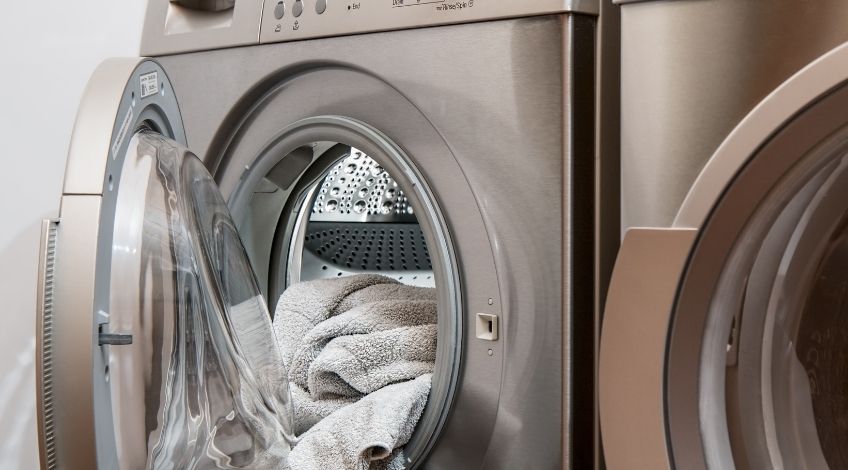
How To Use Citric Acid To Clean Your Washing Machine
All you need to do to clean your washing machine using citric acid is add it to your regular cleaning cycle.
You will need;
- 1 cup of citric acid
Simply;
- Pour 1 cupful of citric acid crystals into the empty drum of your washer.
- Run a hot (60 or 90 C) wash cycle in your machine.
- When the wash cycle has finished, run an extra rinse cycle to remove any traces of citric acid from your machine.
As the drum agitates it will spread the citric acid throughout the drum and into all of the nooks and crannies of your appliance. This will remove all traces of limescale and soap scum leaving your washer clean again.
The extra rinse cycle will remove the last remnants of the citric acid preventing any damage to the machine.
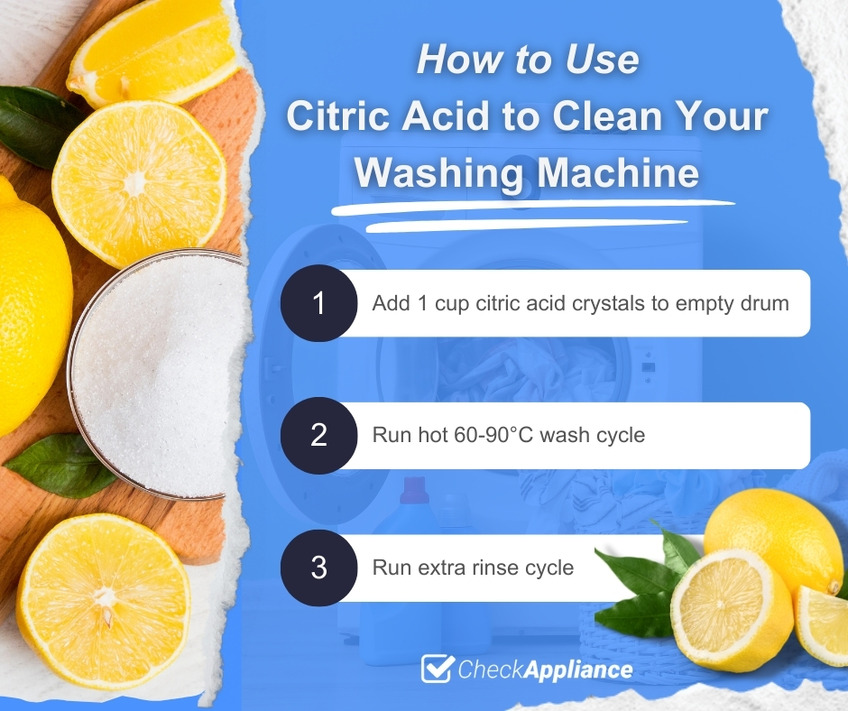
The Argument Against Using Citric Acid To Clean A Washing Machine
Bosch advises against using citric acid to clean their washing machines[1]. They say that it “degrades the rubber parts of the machine”. They then go on to recommend using their own brand descaler.
However the first ingredient in the Bosch dishwasher & washing machine descaler[2] is actually citric acid. So we believe that their main concern when it comes to using Citric Acid would be people using too much and damaging the appliance, although we can’t say for sure.
Many other washing machine manufacturers also claim that citric acid will damage the rubber parts of the washer. With that said, LG actually gives advice on using citric acid to descale their washing machines[3].
Alternative Solutions
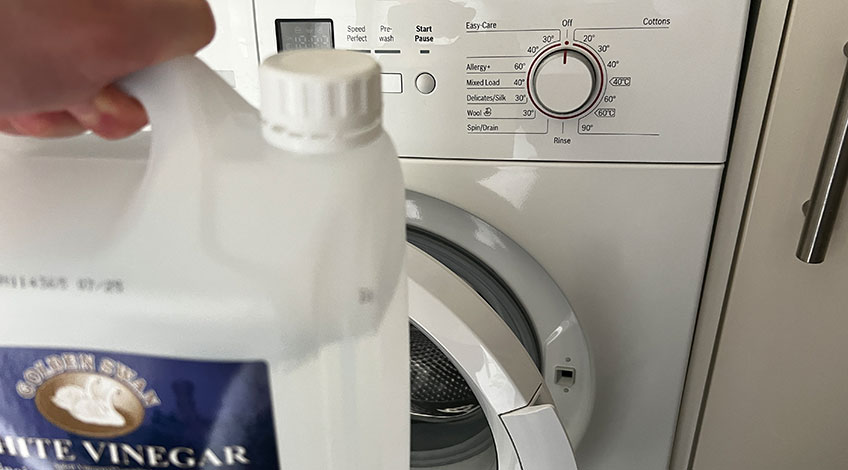
If you’re still not convinced that citric acid is safe to use to clean your washing machine, here are a few other natural alternatives;
Distilled White Vinegar & Bicarbonate Of Soda
To remove limescale and clean your washer all you need to do is pour 4 cups of white vinegar into the detergent dispenser and run an empty hot wash. Once the cycle has started pause it for around 30 to 40 minutes to allow the white vinegar to work on the limescale buildup.
Then allow the cycle to carry on and once it has finished add 1 cup of bicarbonate of soda and run another wash cycle.
Once the machine has finished leave the door open to allow the machine to dry out which prevents any mildew or mould from forming.
Can Vinegar Damage The Washing Machine?
The reality is yes, vinegar can damage the washing machine, especially any parts made from rubber. However, you’re only going to use vinegar once a month when you run a hot service wash.
Plus, as long as you run an extra rinse cycle after the hot wash has completed you will have successfully removed all traces of the vinegar, leaving your machine clean and vinegar free.
How To Combat Hard Water In The Wash
Once you have successfully removed the limescale from your washing machine, you can prevent it from returning by using soda crystals. Add ⅓ cup of soda crystals to every wash.
Caution: Using soda crystals works as a water softener. This means you will need less detergent when using soda crystals.
So, Does Citric Acid Damage Washing Machines?
We’ll let you decide whether citric acid damages washing machines or not. All we will say is that one of the main voices in the yes it does camp, uses citric acid in their proprietary washing machine cleaner. So if you are going to use it, be sure to stick to the recommended amounts.
Now you could argue that the other ingredients used alongside the citric acid in that cleaner cancel out the harmful effects of the citric acid. However that would be false because the other ingredients used are surfactants which just aid in the cleaning process and are not neutralisers.
We wouldn’t go so far as to recommend using citric acid. Ultimately, the choice is yours but if you want to get similar results for a fraction of the cost, it’s not a bad choice.
SEE ALSO: How To Use White Vinegar In The Washing Machine (and why!)
Frequently Asked Questions
To help remove limescale and detergent buildup from a washing machine you should pour 1 cup of citric acid into the drum of your washer and run a hot (60 or 90 C) service wash. When the cycle has completed, run an extra rinse cycle to remove any residue. This should be performed once a month.
If rubber is exposed to citric acid for long periods, it can corrode. However when using citric acid to clean the washing machine, it is diluted and rinsed thoroughly away. This drastically reduces the risk of any damage to the rubber parts of your washer.
In recent tests, it was found that vinegar is more corrosive than citric acid. So it would appear that citric acid is better than vinegar for washing machines. However, as long as you run an extra rinse cycle, neither is likely to harm your appliance.
Also, follow us on Pinterest ...

